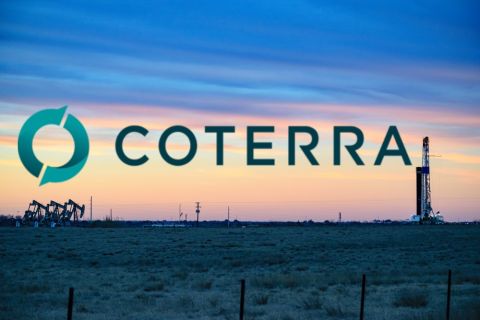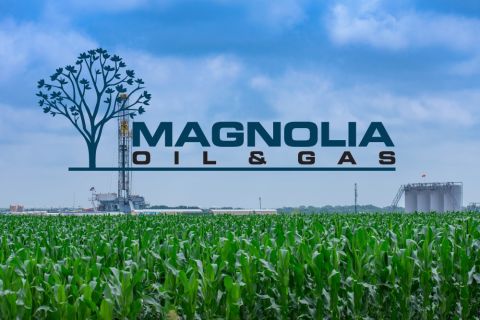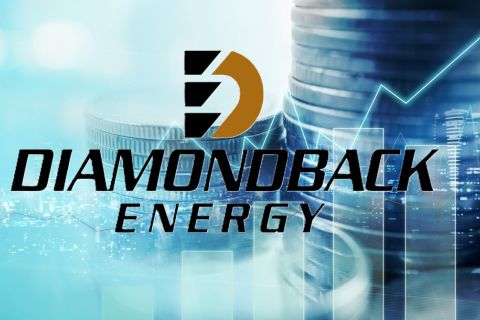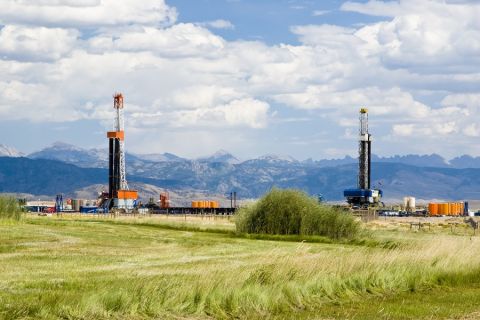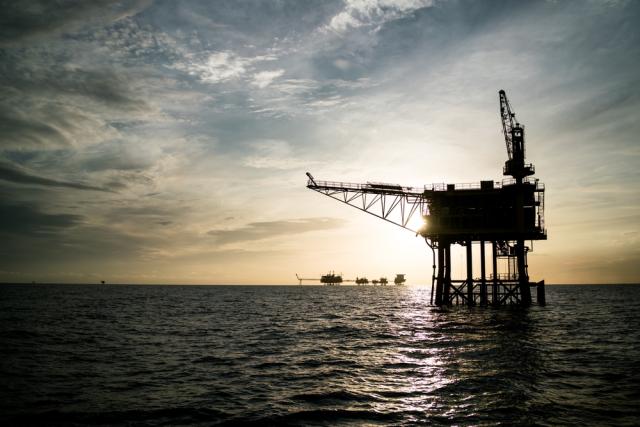
In this photo, an offshore oil and gas wellhead remote platform can be seen. Baker Hughes has been awarded a “significant order” by MODEC to supply gas technology equipment for the BM-C-33 project in the Brazilian pre-salt Campos area, according to a July 5 press release. (Source: Shutterstock.com)
Baker Hughes has been awarded a “significant order” by MODEC to supply gas technology equipment for the BM-C-33 project in the Brazilian pre-salt Campos area, according to a July 5 press release.
The project is under development by Equinor with partners Repsol Sinopec Brasil and Petrobras. The order will be booked in second-quarter 2023. Financial details were not disclosed.
The order comprises turbomachinery equipment—including LM2500 gas turbine generators and steam turbine generator technology—for a combined cycle power generation solution. The turbines will be installed in the BM-C-33 FPSO to reduce the project’s carbon footprint, as well as process design engineering and balance of plant.
“This order is a testament of our established track record when it comes to technology for FPSO vessels. It also strengthens our relationship with MODEC and is a very important milestone in our collaboration with Equinor and its partners,” said Ganesh Ramaswamy, executive vice president of Industrial & Energy Technology at Baker Hughes. “We are honored that our proven solutions will contribute to reduce the project’s carbon footprint, aligning with Baker Hughes’ mission to take energy forward, making it more sustainable and safer.”
The contract with MODEC is the second combined cycle agreement awarded to Baker Hughes from MODEC and Equinor, following the award for the Bacalhau FPSO in 2020.
Combined cycles have become a trend in the offshore oil and gas industry, enabling overall FPSO carbon emissions reductions. For the MODEC project, Baker Hughes expects a more than 20% carbon emissions reduction versus similar open cycle FPSOs with the same power demand. This is the second combined cycle power generation FPSO project developed by Baker Hughes for MODEC and Equinor in Brazilian deep waters, following the award for the Bacalhau FPSO in 2020.
For the BM-C-33 project, Equinor and its partners expect the FPSO to be able to achieve a carbon intensity target of less than 6 kg per barrel of oil equivalent over the field’s lifetime, while the global industry average is 16 kg CO2 per barrel.
Recommended Reading
CEO: Coterra ‘Deeply Curious’ on M&A Amid E&P Consolidation Wave
2024-02-26 - Coterra Energy has yet to get in on the large-scale M&A wave sweeping across the Lower 48—but CEO Tom Jorden said Coterra is keeping an eye on acquisition opportunities.
CEO: Magnolia Hunting Giddings Bolt-ons that ‘Pack a Punch’ in ‘24
2024-02-16 - Magnolia Oil & Gas plans to boost production volumes in the single digits this year, with the majority of the growth coming from the Giddings Field.
Endeavor Integration Brings Capital Efficiency, Durability to Diamondback
2024-02-22 - The combined Diamondback-Endeavor deal is expected to realize $3 billion in synergies and have 12 years of sub-$40/bbl breakeven inventory.
Patterson-UTI Braces for Activity ‘Pause’ After E&P Consolidations
2024-02-19 - Patterson-UTI saw net income rebound from 2022 and CEO Andy Hendricks says the company is well positioned following a wave of E&P consolidations that may slow activity.
E&P Earnings Season Proves Up Stronger Efficiencies, Profits
2024-04-04 - The 2024 outlook for E&Ps largely surprises to the upside with conservative budgets and steady volumes.

